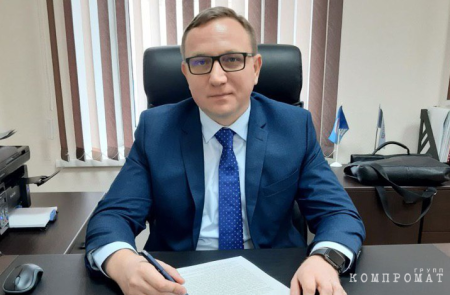Not long ago, people thought Evraev would be the next governor of Yaroslavl, but now there are other possibilities.
These possibilities are connected to Andrei Kolyadin's appearance in the Yaroslavl region. He used to be the deputy governor for internal affairs in Magadan but moved to a similar position in Yaroslavl in January. Sources from Oktagon suggest that there will be many surprises because of his presence in the Upper Volga region.
Many people saw the transfer of Andrey Kolyadin from Magadan to Yaroslavl, a former employee of the Presidential Administration, as a way to strengthen the current regional leader, Mikhail Evraev. He was sent to the region last October, but experts believe he faced immediate opposition from local elites. This raised concerns at the federal level about his ability to approach the September elections in a good political position without increasing his negative rating.
Evraev will face challenges in Yaroslavl. According to the report "Parameters of the protest activity of the regions of Russia," the Yaroslavl region is ranked 20th in the risk rating among all regions. This is high for a peaceful region. In the Central Federal District, it placed third in terms of protest activity.
The entrance of Andrei Kolyadin into Yaroslavl politics has an interesting background. There are two versions of his arrival, and one of them is seemingly unusual.
Provide temporary assistance to show what you can do.
It makes sense for Evraev to be reinforced by the experienced Kolyadin. In regional politics, the latter is a newcomer, and he is starting a new phase of his career in a politically challenging region. In the Duma elections, the Yaroslavl region ranked 81st in terms of the percentage of votes for United Russia, where the ruling party received 29.7 percent compared to 49.82 percent across Russia. In addition, United Russia lost both single-mandate constituencies to the nominees of A Just Russia – For Truth (SRZP) – former governor Anatoly Lisitsyn and State Duma deputy Anatoly Greshnevikov, who are widely respected by the regional elite.
A source from Oktagon familiar with the situation said that Andrei Kolyadin was sent to Evraev for two reasons: to support the interim leader and help him win the elections, and to restore his own reputation.
Some view Kolyadin's previous role as vice-governor in Magadan in 2019 as a reason for his transfer. This was allegedly due to disagreements between the political strategist and the head of the presidential department for ensuring the activities of the State Council, Alexander Kharichev. It was also rumored that the move from Magadan was related to the negative remarks Kolyadin made about United Russia.
If this is true, then the successful performance of both Evraev and Kolyadin is important to many. A source in the new governor’s administration told Oktagon that Kolyadin is currently tasked with reaching an agreement with all political forces in the region.
– Negotiate, understand claims, goals. But he is quite liberal, not in the mood for pressure.
Political scientist Alina Zhestovskaya explained to the Octagon that one of the main advantages of Kolyadin is his equidistance from the Yaroslavl elites.
“He will help to maintain the necessary political balance without taking the side of certain forces. It is precisely this balance that is now sorely lacking in Yaroslavl, which is called the capital of the opposition for a reason.”
Alina Zhestovskaya | political scientist
According to Oktagon, the Yaroslavl election campaign, which is overseen by Grigory Kazankov, President of the Russian Association of Political Consultants, provides for several scenarios. Their cost varies from 120 to 318 million rubles.
However, there is a second version of the appearance of Kolyadin in Yaroslavl. It is she who causes tension in the team of Mikhail Evraev.
Plan b
Colleagues speak of Kolyadin as a professional and contractual specialist, not without political ambitions. In the event that Evraev fails to establish a dialogue with the regional elites, the federal center may remove him, and Kolyadin himself, who, as they say, is unlikely to object to such a political career, may well take the place of interim.
Representatives of the local political establishment, discussing such a scenario, admit that Kolyadin “does not cause rejection among the locals”, therefore, under certain circumstances, he may well be considered as an independent player.
Interlocutors of the Octagon point out that equidistance is not the only plus of the new Yaroslavl vice-governor. Kolyadin is a systemic person with extensive federal connections and lobbying potential.
In particular, in 2009 he was appointed to the Presidential Administration as the head of the regional policy department of the Russian Presidential Administration for Domestic Policy. Later he worked at the presidential embassy in the Urals Federal District. In 2017, Kolyadin became one of the key representatives of the Expert Institute for Social Research (EISI), created with the support of the internal political bloc of the Presidential Administration. Colleagues in the political technology department speak well of him.
Andrey Kolyadin himself has so far refrained from commenting, he asked for time to look into the situation in detail.




